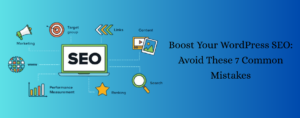Choosing the right platform for your website is one of the most important decisions you’ll make when launching an online presence. Whether you’re a small business owner, blogger, or eCommerce entrepreneur, your platform needs to align with your goals, technical skill level, and future scalability. In this post, we’ll dive into the strengths and limitations of two of the most popular platforms: WordPress and Shopify.
What is WordPress?
WordPress is a content management system (CMS) that powers over 40% of all websites on the internet. It’s open-source, highly customizable, and ideal for a wide range of websites — from blogs and portfolios to complex eCommerce stores using plugins like WooCommerce.
What is Shopify?
Shopify is an all-in-one eCommerce platform designed to help you start, grow, and manage an online store. It takes care of hosting, security, and updates, making it an excellent choice for users who want a simplified, hands-off experience for their online store.
WordPress vs. Shopify: Key Differences
1. Ease of Use
- WordPress: Requires some technical knowledge or familiarity with themes and plugins. Perfect for users who want full control.
- Shopify: User-friendly and designed for beginners. You can launch a store quickly with drag-and-drop functionality.
2. Customization & Flexibility
- WordPress: Highly flexible. Thousands of themes and plugins available. You can build literally anything if you know some coding.
- Shopify: Limited customization unless you use Shopify’s Liquid code. Best for straightforward eCommerce needs.
3. eCommerce Capabilities
- WordPress: With WooCommerce (a plugin), WordPress becomes a powerful eCommerce tool. You’ll need to handle hosting and setup yourself.
- Shopify: Built specifically for online selling. Comes with built-in payment gateways, inventory management, and shipping tools.
4. Cost
- WordPress: Free to use, but you’ll pay for hosting, premium themes, and plugins.
- Shopify: Monthly subscription starts from $39. Some apps cost extra.
5. SEO & Blogging
- WordPress: Excellent for SEO and blogging. You have full control over metadata, URLs, and content structure, which helps improve search rankings.
- Shopify: Decent SEO tools, but not as flexible as WordPress. Blogging features are basic.
6. Scalability
- WordPress: Can scale as your site grows, but you’ll need to manage updates, backups, and security.
- Shopify: Scales easily with your business, and Shopify handles maintenance for you.
Which One Should You Choose?
Choose WordPress if:
- You want full control and flexibility
- You plan to create a blog or content-driven site
- You’re comfortable (or have help) with website maintenance
- You want to scale with custom features
Choose Shopify if:
- You’re focused purely on eCommerce
- You want a quick and easy setup
- You don’t want to worry about hosting or security
- You prefer a simple, all-in-one solution
Final Thoughts
Both WordPress and Shopify are powerful platforms in their own right. The best choice depends on your specific needs, goals, and technical ability. If you’re unsure, start by clearly defining what you want your website to do — and choose the platform that makes that easiest for you to achieve.
Need help deciding or setting things up? Contact me — I’m happy to guide you!




